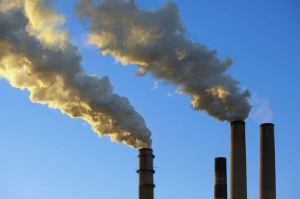


(Posted on 15/11/18)
The World Coal Association (WCA) has launched a new report calling for a step-change in international action to advance carbon capture, use and storage (CCUS) technologies.
The World Coal Association is the only body acting internationally on behalf of coal, with a mission to demonstrate and gain acceptance for the fundamental role coal plays in achieving a sustainable, lower carbon energy future.
The report, “Driving CCUS deployment: The pathway to zero emissions from coal” notes that with fossil fuels continuing to account for almost three-quarters of global energy for decades to come, there is an urgent need to ramp up international efforts on all low emissions technologies, including CCUS.
CCUS is widely recognised as a vital technology needed to meet the Paris Agreement goals.
Launching the report, WCA Interim Chief Executive, Katie Warrick said: “Since COP21, WCA has called on governments to move quickly to support low emissions technologies, including CCUS, by promoting policy parity. We need to adopt and develop a new approach to CCUS financing to support faster and wider deployment. Action to advance CCUS requires an international commitment with a broad support base. This report shows how the coal industry has been actively engaged with CCUS over many years, with projects in the US, China, India and Canada among others.”
“Multiple independent forecasts show that coal (and other fossil fuels) will play a significant role in the energy mix for decades to come. It’s vital that countries that have included a role for low emission coal technologies in their Paris Agreement plans are supported in their efforts to follow a zero emission pathway for coal. The first major step, through high-efficiency low-emissions (HELE) technologies, is well under way and is being deployed in the many new coal-fuelled generating plants being built in multiple countries. It’s important that alongside supporting these efforts, we also work to ensure that CCUS can be included in the longer-term national mitigation plans,” Ms Warrick added.
The Global CCS Institute has estimated that over 2732 large-scale CCUS facilities will be needed by 2050 to achieve the objectives of the Paris Agreement. The International Energy Agency has also estimated that 14% of cumulative emission reductions to 2060 would have to come from CCUS. The latest report by the International Panel on Climate Change also gives prominence to CCUS.
It is for this reason that the WCA is calling for concerted international effort towards large-scale deployment of this key climate technology across various sectors, including electricity generation, industrial applications and bioenergy.
Trafigura Group Pte Ltd, a global leader in the commodities industry, has announced its financial results... Read more
Rio Tinto has successfully produced the first copper from the Johnson Camp mine in Arizona using its... Read more
The American Soybean Association’s World Initiative for Soy in Human Health programme and the... Read more
Karlka Nyiyaparli Aboriginal Corporation (KNAC) Registered Native Title Body Corporate and Rio Tinto... Read more
OCI Global, a leading global producer and distributor of nitrogen products has announced that it has... Read more
In December 2024, SSAB was granted a permit by the Land and Environment Court at Umeå District... Read more
The President of the Republic of Guinea has joined project partners WCS1, Baowu, Chinalco and Rio Tinto... Read more
GSC (Global Strategic Commodities) has announced the launch of its dedicated mining advisory division... Read more
SSAB AB has successfully issued its inaugural green bonds under its EUR 2 billion EMTN programme, dated... Read more
On 9 September 2025, Anglo American plc and Teck Resources Limited announced that they had reached an... Read more